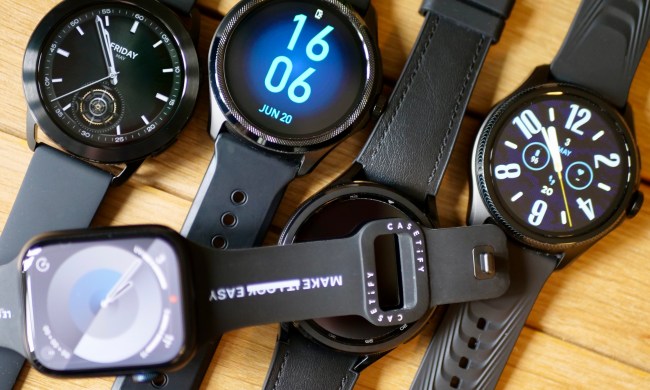Samsung is ready to take a stab at another wearable segment, less than a year after introducing its first smart ring. A Shenzhen-based research company, Wellsen XR, shared in an investor note Samsung’s plans to launch smart glasses that could arrive late next year or early in 2026.
“Samsung Electronics’ plan to release AI smart glasses was confirmed earlier this month, and its first production volume is 500,000 units in the third quarter of 2025,” says the note, which was reported by Maeil Business Newspaper.
Interestingly, Samsung is not chasing something too ambitious or innovative in terms of the tech stack. Instead, the company is taking the safe route and eyeing the same formula as the runaway success that was the Meta Ray-Ban Stories smart glasses, down to the core internal hardware.
The Samsung smart glasses will reportedly come armed with Qualcomm’s AR1 Gen 1 wearable silicon and an NXP semiconductor as a secondary processing unit. Multimedia capture duties will be handled by a 12-megapixel camera with a Sony CMOS sensor at its heart.

The smart glasses are said to draw power from a 155 mAh battery and tip the scales at 50 grams. As far as capabilities go, the front camera sensor will come in handy for code scanning, gesture recognition, and more, aside from the usual photo and video capture duties.
Despite the fundamental similarities with the Meta Ray-Ban smart glasses, the software stack would be different. Instead of the Meta AI bundle that is now available on the Stories smart glasses with multi-modal capabilities, Samsung will look at Google.
Specifically, the Korean electronics giant will put Google’s Gemini AI at the heart of its smart glasses. That partnership isn’t surprising since Samsung’s Galaxy smartphones were also among the first to introduce native Gemini-powered features as part of its Galaxy AI bundle.
This would be quite a substantial edge, as Gemini already has been integrated deeply within Google’s products, especially the Workspace suite that is used by hundreds of millions of users. At the moment, it can pull off a lot of meaningful tricks in products like Gmail, Docs, and more, while also letting users access custom AI agents.
Moreover, the Android collaboration would go a long way in seamlessly connecting the smart glasses with phones and other ecosystem products. However, Samsung won’t be the lone player in the smart glasses game. Chinese archi rival Xiaomi is reportedly developing its own version that would try to emulate the success of Meta’s offering.




